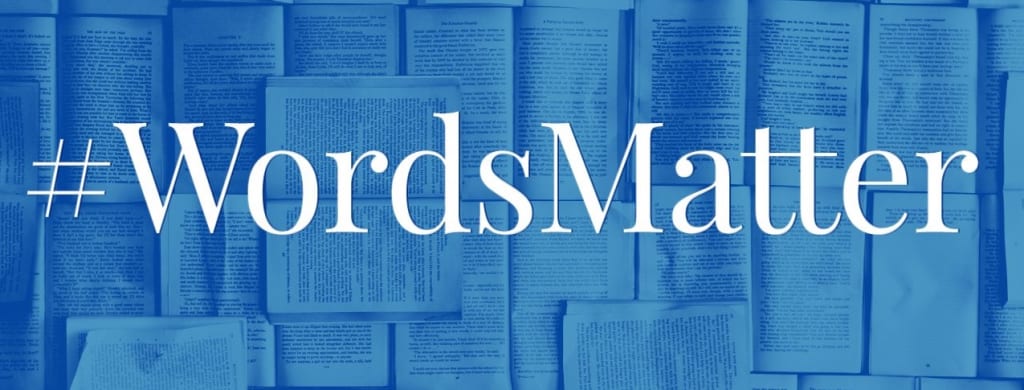For Whom the Dictionary Trolls
The big book you grew up with is enjoying greater connection with the public as a ‘funny, timely, relevant’ document of our time.

The idea of “the resistance” has taken on many forms since Jan. 20th. Much of its new power and identity has been a product of visible protest in the streets, on blogs and in the airwaves since Donald Trump took office. But for months now, there’s been another free-floating resistance, a pushback of words and language by the people whose business it is to know words and language, and how to use them.
Merriam-Webster, the well-known dictionary company (you grew up with one at hand. We all did), has lately gone on offense against some of the inventive wordplay of House Trump, and done it in a snark-free, tongue-in-cheek way. The company, founded in 1831 in Springfield, Massachusetts, had already been following Trump, a target of opportunity both in his current guise and as a presidential candidate for 18 months.
Merriam-Webster has been slowly stepping up its game, helping people make sense of various legal-tinged words via its Twitter page. On Monday, for example, M-W tweeted that searches for the word “refute” spiked after FBI Director James Comey asked the Justice Department to refute unproven wiretapping claims by Trump, who over the weekend accused former President Obama of wiretapping Trump Tower.
On Feb. 23, in response to statements made at a conference by Trump White House senior adviser Kellyanne Conway, (who said being a feminist is linked with being “anti-male” and “pro-abortion”), M-W tweeted its definition of “feminism” — “the belief that men and women should have equal rights and opportunities.” You’re welcome, Kellyanne.
◊ ◊ ◊
These weren’t the first times Merriam-Webster faced down Trump & Co. The company took a genial shot at The Donald’s revisionist English last year, going after him for one of his more celebrated malapropisms. “Good morning! The #WordOfTheDay is ... not 'unpresidented'. We don't enter that word. That's a new one,” M-W tweeted. Properly embarrassed, the Trump web site spelled the word — “unprecedented” — correctly later in the day.
The Trump White House was obliquely schooled by M-W over the use of the phrase “military operation.” Frighteningly, in a news conference, White House Press Secretary Sean Spicer defended the use of that phrase to describe the style of, but not the actors in, the deportations proposed by Trump as a candidate and at the White House.
M-W patiently explained to the world (and to an administration that shoulda known better) how “military is an adjective, but it does not mean ‘precision.’” Still, take note: In the Trumpian reptile brain, deportation = “military operation” as a first-blush word choice.
◊ ◊ ◊
It’s been this way right on up to recent days and weeks, with the M-W website and Twitter page working in tandem, responding to and expanding on organic word searches based on what people are asking about.
The word “recuse” similarly spiked on M-W once the Jeff Sessions/Russian friends controversy achieved escape velocity in social media. On March 2, lookups for the word were up 45,000 percent. On Feb. 24, the word “gaggle” was trending after House Trump blocked several news organizations from attending that day’s briefing. On Feb. 22, “rescind” got a jump after Trump’s decision to rescind government protections for transgender students.
And on Jan. 31, hunts for the word “calamity” jumped higher after a tweet from John Dean, the former Nixon White House Counsel, who said that, given the Trump presidency’s broken beginnings, “it is safe to say it will end in calamity. It is almost a certainty.”
◊ ◊ ◊
It’s all part of a sea change for the dictionary company and its staff, who rejoice behind the message of a tweet pinned at the top of the M-W Twitter page: “Our job is weird.”
For Lauren Naturale, M-W content and social media manager, it’s time to shake up the popular perception of what a dictionary can be. “Part of our social mission is to show the world how funny, timely and relevant the dictionary can be,” she told Kristen Phillips of The Washington Post. “Social media is about connecting with people and we love that our followers are very engaged.”
Maybe now more than ever.
About the Creator
Michael Eric Ross
Michael Eric Ross writes from Los Angeles on politics, race, pop culture, and other subjects. His writing has also appeared in TheWrap, Medium, PopMatters, The New York Times, Entertainment Weekly, msnbc.com, Salon, and other publications.
Enjoyed the story? Support the Creator.
Subscribe for free to receive all their stories in your feed. You could also pledge your support or give them a one-off tip, letting them know you appreciate their work.






Comments
There are no comments for this story
Be the first to respond and start the conversation.